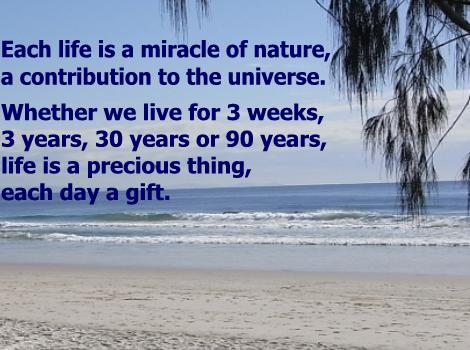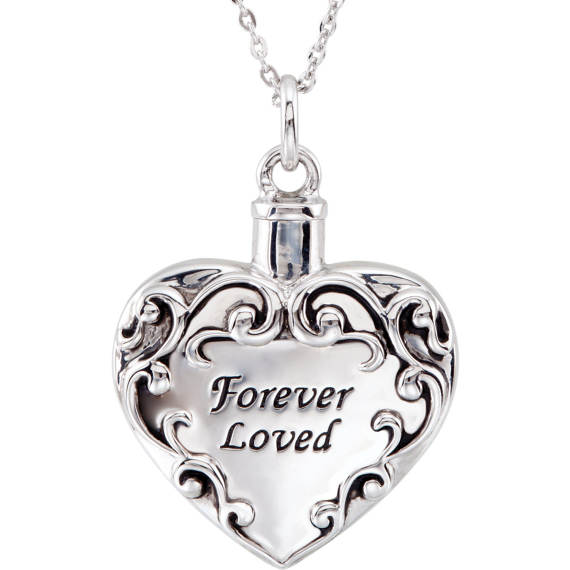Death of a Teenager - How to Cope with the Grief
If you are suffering grief for the death of a teenager, you have my deepest sympathy. I hope that some of the information on these pages may give you a glimmer of hope. Many of the general pages on how to deal with grief may also be useful to you.
The death of a teenager, for whatever reason is a tragedy. Parents feel particularly guilty when it is an accident or suicide. You have to come to terms with the fact that it wasn’t your fault. You allowed them the freedom to live and grow. You only gave them this life.
Just because parents bring children into the world they do not own them. They are on loan from the universe. They have to be allowed a certain amount of freedom and be allowed to grow up with an element of risk.

Grieve, but also celebrate the life of your teenager
Remember if you’re grieving it’s because your teenager was loved. No-one can hope for more than that.
Celebrate the life and talk about the memories.
There will be tears, but there will be lots of laughter and anecdotes
too. You have to be happy for the life they had. Do not be scared to
talk happily about your teenager and celebrate the life he or she had
and the friends they shared. If
a birthday arrives, don’t sit and mope. Give the family a lovely meal,
invite the friends. For more help see “Grief and the Holidays”.
Make a happy life now for yourself and other family members. Forgive yourselves, grieve, cry but then wake up!
Remember
the wonderful years with a happy child. The holidays, family meals,
parties. Learn to celebrate the life they had, the love you had for
them.
Brian's story - hope following the death of a teenager after a long illness
Brian (names have been changed) was only 7 years old when he started to become listless. He had no energy and refused to go to school. The doctor told his mother that it was probably due to change of school and country, as they had recently emigrated as a family.
After a few months, the moved back to be near to the old schools and their extended family to see if this helped. However, sadly at 9 years old, he was diagnosed with a brain tumour.
The surgery and chemotherapy all seemed to work well and life for the family settled down again. However, following one of his yearly checks, Brian had devastating news that a tumour had returned. This time treatment could only be for pain management and Brian had 18 months before he died at almost 17 years.
For his parents, and his younger brother and sister it was still a huge shock. They’d coped for years knowing he was ill, but he’d still been to school, been a normal teenager and life had gone on normally.
Work for the parents, and school for the siblings helped them through the next difficult months, along with support from their extended family. The Mum came to me one day and said “I don’t know what to do”. I asked what she meant. She said “Brian would be 18 tomorrow”. I told her the best thing would be to cook the family’s favourite meal, invite a couple of Brian’s best friends and celebrate his life. I gave her chocolates and wine to help with the celebrations.
Two days later I got a big hug and a smile. It had all gone so well. All the family had been fearful of mentioning the subject. I gave them permission to celebrate his life, to talk about the fun times, share anecdotes. He was a kind, studious, handsome boy, a life well worth celebrating.

Don't blame yourself for teenage accidents
The major cause of death for teenage boys is accidents. They think they are indestructible. Skate boards, bicycles, surfing, rushing everywhere, so full of life. Many parents have the urge to wrap them in cotton wool, keep them safe.
All parents can do is point out the dangers, give advice on safety gear and let them be free.
Teenage Suicide - again don't blame yourself
Life can become very difficult for late teens and young adults. Unreasonable expectations of becoming fighter pilots or wealthy businessmen, or actresses or fashion models are dashed. Reality steps in when trying to study for exams, find a job or get into university.
They have the pressures of first love and being accepted by the “in” group. Adulthood is looking scary. Peer group pressure is paramount at this stage. Fear of failing and anxieties about being accepted mount up.
Parents can be aware of trouble and can try to reach out to their son or daughter, but when the worst happens and a suicide occurs, whether drugs related or not, the guilt can be overwhelming. However, it is not your fault.
It takes years of training and experience to recognise teenage depression in an individual. Even consultant psychiatrists get it wrong many times.
Parents can only do what they think is right at the time.

Death of a teenager through self-harm
Smoking, drinking, drugs, self-harm or anorexia. These are all life threatening. Whenever a family member dies in circumstances of self-harm, the grief can be very strong. There is a lot of guilt. You must forgive yourself. You could only do what seemed right at the time.
The individual may have had many reasons which we couldn’t have understood. Even specialists have had difficulties in recognising these types of problems and how serious they have become. Society is a cruel place for kind, sensitive children. You can only do what you think is best at the time.
Related Pages:
Grief and Guilt - How to Stop Blaming Yourself
Books on Grief for Parents who Have Lost a Child
- Grief and Sympathy Home
- Grieving Loss of a Child
- Death of a Teenager
Where to get help:
Have You Considered One-on-One Online Grief Counseling?
Get Expert and Effective Help in the Comfort of Your Own Home
The following information about online counseling is sponsored by 'Betterhelp' but all the opinions are our own. To be upfront, we do receive a commission when you sign up with 'Betterhelp', but we have total faith in their expertise and would never recommend something we didn't completely approve.
Do you feel alone and sad with no support and no idea how to move forward? It can be tough when you are stuck in grief to find the motivation to get the most out of your precious life.
Online counseling can help by giving you that support so you don't feel so alone. You can have someone to talk to anytime you like, a kind and understanding person who will help you to find meaning in life again, to treasure the memories of your loved one without being overwhelmed and to enjoy your activities, family and friends again.
- Simply fill out the online questionnaire and you will be assigned the expert grief counselor most suitable for you. It only takes a few minutes and you don't even have to use your name.
- Pay an affordable FLAT FEE FOR UNLIMITED SESSIONS.
- Contact your counselor whenever you like by chat, messaging, video or phone.
- You can change counselor at any time if you wish.
- Click here to find out more and get started immediately.
- Or read more about how online counseling works here.
Sales from our pages result in a small commission to us which helps us to continue our work supporting the grieving.
Hypnosis for Grief - 10 Ways It Can Help You
Try a gentle hypnotherapy track to relax the mind. Learn how self-hypnosis can help you cope with grief at any time of the day or night.

For Remembrance:
Sales from our pages result in a small commission to us which helps us to continue our work supporting the grieving.
Memorial Jewelry to Honour a Loved One
Check out our lovely range of memorial jewelry for any lost loved one. Pendants, necklaces, rings or bracelets, we have them all in all kinds of styles. Choose for yourself or buy as a sympathy gift.
Create an Online Memorial Website
Honour your loved one with their own memorial website. Share photos, videos, memories and more with your family and friends in a permanent online website. Free for basic plan with no ads.








